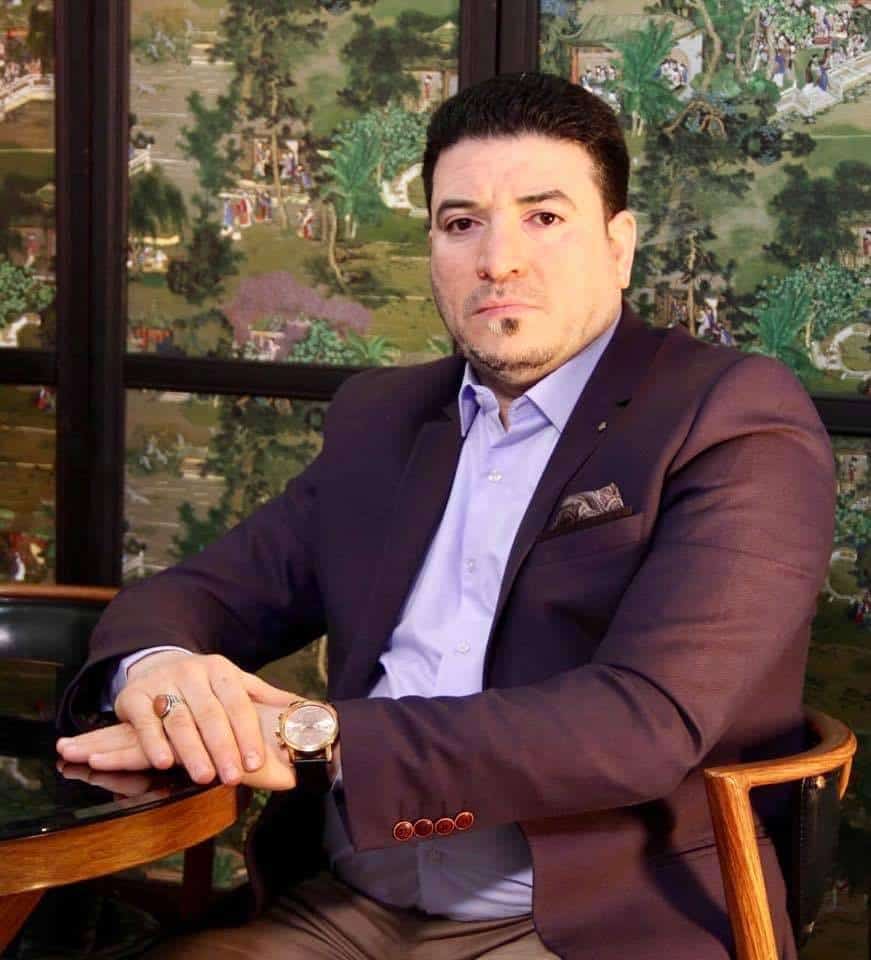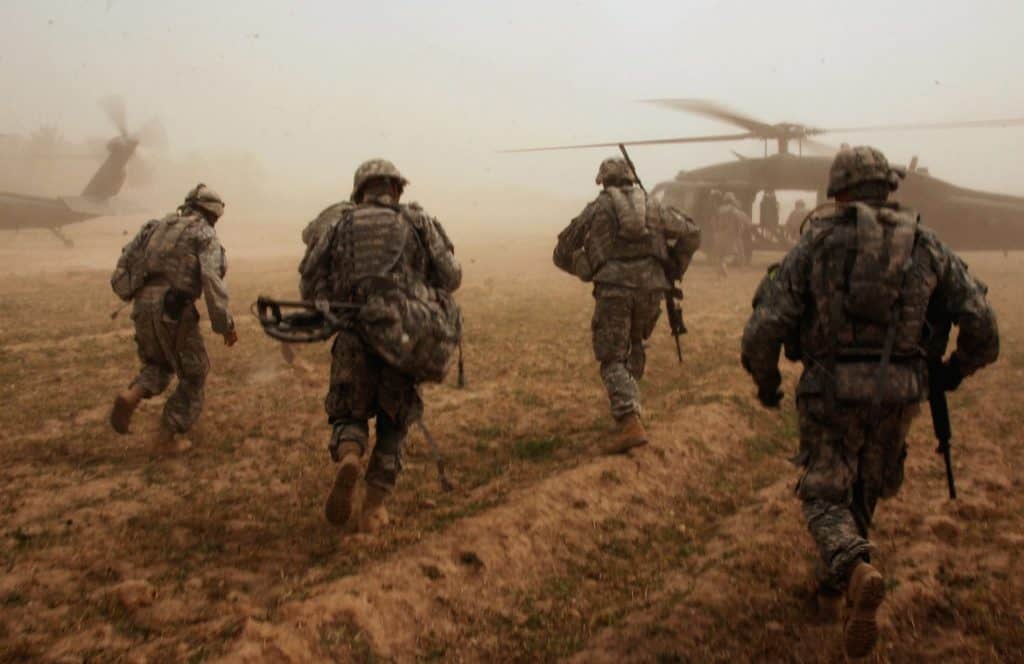Interview with Abbas Al-ardawi
Washington, through official Baghdad’s allegations of involvement in attacks on Saudi oil facilities, seeks to strengthen US military involvement in Iraq. On February 3, 2019, Donald Trump officially announced in an interview with CBS that he intends to increase the American contingent at the Ain al-Assad military base in western Iraq. However, there was no reason for this until the moment of the attack on the oil facilities of Saudi Arabia. The White House administration hastened to accuse Iraq of providing its airspace for the flight of ballistic missiles.
The accusations by Donald Trump have sparked criticism in Baghdad, which fears that in this way the US intends to drag Iraq into a conflict with neighboring Iran. In addition, the Iraqi leadership proceeds from the view that, as a result of the strengthening of the US military presence in the region, there is a risk of intensification of the activity of the Islamic State, which aims to revive its influence in Iraq.

Especially for World Geostrategic Insights, we talked about this with Iraq’s leading political analyst, head of the Iraqi Center for Political Studies, Abbas Al-ardawi.
1. Concerning the topic of recent attacks on Saudi oil facilities, international experts expressed the view that ballistic missiles, allegedly launched from Iran, had a rather complicated flight path. In particular, these missiles penetrated the airspace of Iraq and from there were sent to the territory of Saudi Arabia. Based on this, many military analysts believe that attacks on Saudi targets were agreed with the official Baghdad, which provided its airspace for missile flights. Is it really? Is it fair to say that allegations of Iraq’s involvement in the Saudi incident are an occasion to aggravate relations between Baghdad and Riyadh, as well as between Baghdad and Washington? How likely is it that the Saudi oil facility incident will not have serious international implications for official Baghdad?
– The attacks to which the oil facilities in Saudi Arabia were subjected occurred after threats from the leader of the Yemeni movement Ansar Allah (Hussites) Abdulmalik al-Khuti, when he announced a new stage in the aggression of Saudi Arabia against Yemen and that Yemen and Hussites do not have international support. And while Ansar Allah dealt a quality and fatal blow to the Saudi and global economies, blaming others for this attack is a mistake, because even Iraqi Prime Minister Adil Abdul Mahdi and US Secretary of State Mike Pompeo have denied this.
But the US has a reason not to recognize the failure of the American Patriot air defense system. This is necessary for Washington in order to demonstrate to the international community, in general, and Riyadh, in particular, that American weapons are still the main deterrent, despite the fact that attacks on Saudi targets indicate the opposite. In turn, the United States seeks to “kill several birds with one stone” at the same time, using the attack on Saudi Arabia as a pretext for solving its own foreign policy tasks. On the one hand, they want to tie Iran to the incident in order to increase pressure on it. On the other hand, it is important for them to cast a shadow of doubt on official Baghdad, which supposedly provided its airspace for flying missiles.
So the White House administration is looking for a reason to increase its military presence in Iraq. Of course, such a scenario may lead to tension in interstate relations. But what will turn out to be reality will be shown in the near future.
2. On September 18, 2019, an official spokesman for the Iraqi Parliament’s Security and Defense Committee stated that Riyadh’s allegations of Baghdad’s involvement in attacks on Saudi oil facilities are aimed at organizing an attack by the international coalition on the positions of the Iraqi militia Hashd al-Shaabi . Does this mean that Saudi Arabia is actually considering a scenario of the outbreak of hostilities against Iraq? Is the recent redeployment of Iraqi militia forces in the vicinity of Baghdad and the re-assignment of their central military command to the country connected with preparations for the upcoming military operations?
– Saudi Arabia seeks to weaken Iraq and show that it is an aggressor in order to evade its inability to wage war with Yemenite Hussites, and also because the armed forces supported by Riyadh were not able to resist the Iraqi army. In turn, Hashd al-Shaabi seeks to put pressure on the United States and, thus, destabilize the situation in the region. However, it is premature to claim that the Hashd al-Shaabi or the Saudis are preparing for military operations in Iraq, especially after the Iraqi militia became subordinate to the central command of official Baghdad. Currently, the Iraqi government is not considering the possibility of conducting full-scale hostilities, and even in the US-Iran conflict formally declared its neutrality. By virtue of this, the militia, dependent on Baghdad, will not attempt to start a war. As for Riyadh, he is also not inclined to open a new front, since he is already engaged in military operations in Yemen.
3. According to the statement of the head of the intelligence department and the fight against terrorism of the Ministry of Internal Affairs of Iraq, Abu Ali al-Basri, on September 12, 2019, the Iraqi justice system sentenced Abrar al-Qubaisi to life imprisonment, which played a key role in the studies of the Islamic State team on the development of chemical and biological weapons. Is it fair to say that after the arrest and sentence of Abrar al-Kubaisi, the Islamic State lost the opportunity to use weapons of mass destruction, given that Abrar al-Kubaisi is probably not the only chemist who collaborated or continues to cooperate with the Islamic State ? Many experts are inclined to believe that, in addition to chemical and biological weapons, the Islamic State already has nuclear weapons. Thus, the Islamic State for three years controlled the Syrian region of Deir ez-Zor, where the Al-Kibar nuclear reactor is located, and therefore the terrorist group could well steal the enriched uranium necessary for the manufacture of nuclear weapons. In addition, the Islamic State is armed with cobalt-60 radioactive material captured in the training laboratories of the city of Mosul. Does this mean that in the foreseeable future the Islamic State can use nuclear or radiological weapons for terrorist purposes? Is the threat of a nuclear war organized by the Islamic State real?
– Washington has traditionally pursued the goal of finding hotbeds of conflict through which it could intervene in any region of the world, and the Middle East, in particular. A wide range of information warfare methods are used to justify American politics, including lies. One manifestation of such a lie is information on the development and testing of weapons of mass destruction. The “Islamic state” tried to develop chemical and biological weapons, for which it attracted experts from different countries. Today it is known that the terrorists managed to make some progress in the use of mustard gas and chlorine in the course of hostilities. However, there is no accurate information that ISIS may have components for the production of nuclear or radiological weapons. Moreover, if such an weapon were at the disposal of the Islamic State, it would most likely have already been used to strengthen the position of terrorists. But since this did not happen, it is logical to conclude that ISIS probably does not have such weapons.
4. In fatwa 2003, a Saudi cleric of jihad Nasir bin Hammad al-Fahd confirmed the use of nuclear and radiological weapons for religious struggle. In 2015, al-Fahd swore allegiance to Abu Bakr al-Baghdadi. Does the evidence suggest that the Islamic State is still conducting or planning to develop nuclear weapons for the purpose of jihad? How likely is it that Nasir bin Hammad al-Fahd can become the main ideologist of nuclear war under the control of the “Islamic State”?
“The Islamic State and other terrorist organizations are striving to use any informational occasion in order to loudly declare themselves. However, the situation is such that terrorist propaganda conflicts with reality when ISIS, despite the loud statements of its leaders, is practically defeated in all directions. Currently, the “Islamic State” is deprived of territory. Therefore, the new adherents of the group have no reason to remain faithful to the oath of Abu Bakr al-Baghdadi, since ISIS cannot provide them with anything other than martyrdom. A statement by Nasir bin Hammad al-Fahd is nonsense. He cannot do anything because he is currently in prison in Saudi Arabia. In this regard, even if he swore allegiance to the Islamic State, this does not change anything. He will remain in prison until the end of his life and will never get the opportunity to realize his terrorist plans.
5. More recently, official Baghdad asked Jordan to extradite him a number of wanted individuals, including the youngest daughter of Saddam Hussein, Ragad Hussein. In addition, Iraq intends to impose economic sanctions against Jordan if the request for extradition is ignored. Does this mean that relations between the two countries may deteriorate in the near future, given that Amman is unlikely to betray Ragad Hussein to Baghdad. Does Ragad Hussein pose a real danger to the current political development of Iraq?
– The issue of extradition of Ragad Hussein to Iraq is a matter of state security, especially after the recognition of a number of terrorists that they received funds to undermine security in Iraq and destabilize the political system from persons of the ousted regime, including personally from Ragad Hussein. Iraqi law enforcement agencies have information that it supports terrorist groups with money stolen from Iraq under Saddam Hussein. In turn, the Iraqi government is working to monitor Iraqi smuggling funds and prevent the interference of Ragad Hussein and a number of Ba’ath leaders in security and political affairs. It is possible that Jordan, where Ragad Hussein is now, will refuse to extradite her to Baghdad. But over time, countries will be able to agree. The only question is what price can the Jordanian government call Ragad Hussein.
Image Source: Flickr







